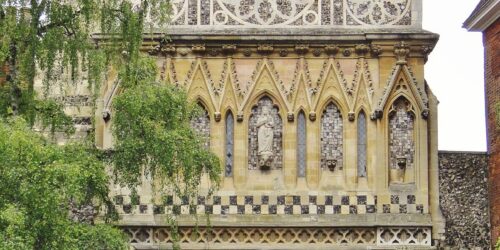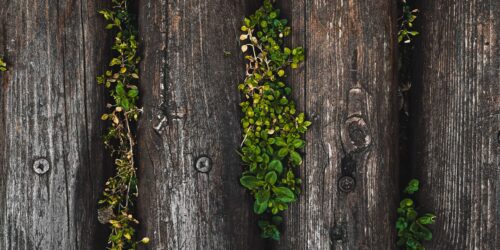
Poet and virtual NCW resident Crispin Rodrigues makes links between Colman’s mustard and Singaporean home cooking.
During his residency, Crispin discovers Jeremiah Colman, founder and namesake of ‘Colman’s Mustard’, was buried in Norwich. Making up for the lack of writing on the origins of ‘Colman’s Mustard’, Crispin devises his own, and draws connections between cooking and the handing down of family recipes in Singapore and in Norwich. He explores the use of mustard seeds, and Colman’s mustard, in Curry Debal, noting the colonial roots of this dish. Joining up Norwich and Singapore by way of ingredients, Crispin envisions different ways he has already encountered parts of Norwich from afar.
Crispin produced this commission during a 2022 virtual residency with NCW, generously supported by National Arts Council of Singapore.
How Mustard Gets Here
Everyone who has spent an evening with me knows that I love to eat, but I also love the stories that dishes communicate through the history of their ingredients. I absolutely love how dishes change because home cooks have simplified recipes by employing certain brands of ingredients that have become de facto parts of the dish over the generations.
I had no connection with Norwich at all before this residency began until Kate told me that Jeremiah Colman of Colman’s Mustard was buried in Norwich where he founded the company. There weren’t many resources on the history of Colman’s online except for a video created by Norfolk Now on YouTube that tracks the history of the brand in 1 minute and 51 seconds. In the absence of a clear history of travel, I shall craft an imagined one in its stead.
Mustard seeds are one of the main ingredients in Curry Debal, the most famous dish of the Eurasian people in Malaysia and Singapore, and is unique for its lack of curry leaves and its use of vinegar, which helps to preserve the dish for long periods of time. My father often says that it is a dish that tastes good when you first cook it but tastes better once you’ve let it sit (in a fridge) for a day or two. While the history of this specific dish isn’t well documented, many say that it is due to the history of colonisation when our Portuguese ancestors brought curry recipes from Goa and then wanted to preserve the dish across the Indian Ocean as they migrated to Southeast Asia, and so vinegar was used to keep the curry for these long voyages at sea.
This brings me back to Colman’s Mustard and how it ended up in a dish that started from Portuguese conquest of Goa over 500 years ago. The old practice was the use of a mortar and pestle to crush and grind the spices into a fine paste called a rempah. In modern times (and some say a very Singapore) tradition is to have ‘food hacks’ to help make meal preparation easier. One of the ways that my family (and many Eurasian families) does it is to use powdered Colman’s Mustard as a substitute for mustard seeds in our Curry Debal recipes. My father says that he learnt it from his father, who had learnt to cook from his mother, but whether my great-grandmother had used Colman’s Mustard or mustard seeds is unclear. But like the mustard, which was given from Jeremiah Colman to his nephew James, it runs in the family.
There is a mysterious yet serendipitous bridge that connects my culture with one that I have yet to meet in person
My father tells me that Colman’s Mustard tastes different from regular mustard seeds. It has an edgier astringency that you don’t get from grinding regular mustard seeds. In Singapore, mustard seeds are regularly used in Indian curries, and no sane Indian grandma in their right mind would approve of our cooking methods, but there is no other way for us to arrive at the same taste.
Arrival has been a question on my mind throughout this residency in Norwich. How can I say that I have been to a place if I have never truly arrived? And yet, how have I not arrived in Norwich when one of its most famous products has already touched my tongue? There is a mysterious yet serendipitous bridge that connects my culture with one that I have yet to meet in person, and yet here I am writing about a factory that has since closed down and moved somewhere else.
On Google Maps I google Carrow Works where the Colman’s plant used to be and a journey by foot states that it will take me 111 days and 1 hour. The little black dots that link the factory to my home in Yishun remind me of mustard seeds. I imagine someone walking that trail, crushing these dots under their foot and storing them in a bag, and by the time it reaches me in time for Christmas, I will have ample mustard powder for generations of Curry Debal.
Perhaps the tour of this Norwich for me began 500 years ago when the Portuguese decided to invade India, and, wrapped in the vinegar of an online archive, swerved along the Straits of Malacca and ended up as a shortcut in the food of my people.


Crispin Rodrigues is the author of three collections of poetry, Pantomime, The Nomad Principle, and How Now Blown Crow, as well as co-editor of Crazy Little Pyromaniacs, an anthology of poetry by Singapore poets 35 years-old and below. He has also dabbled in multimedia forms of literary work such as a poetry tour of his hometown of Yishun, Singapore.
For his residency, Crispin worked on his fourth collection of poetry that stems from his mixed-race heritage, and focuses on monstrosity, language hybridity as well as relationship between colonialism and neo-colonialism.
In 2022, the National Centre for Writing offered three virtual residencies for writers from Singapore, generously supported by the National Arts Council of Singapore. The writers were Akshita Nanda, Crispin Rodrigues and Daryl Qilin Yam. Over the six months, the Singaporean writers worked on a project with a UK-based writer as mentor. They also met online with writers and translators connected with Norwich, took part in an interview for The Writing Life podcast and participated in Meet the World events. At the end of the residency, we commissioned a piece from each writer reflecting on their residency and their writing. They also contributed writing tips and a blog for Walking Norwich. Read more here →
You may also like...
The Creepiest Walk in Norwich
Discover Tombland through new eyes with our virtual resident Akshita Nanda

15th February 2023
‘In the Language Slipstream’ by Crispin Rodrigues
A commission from our 2022 virtual resident on code-switching, speech acts and biracial-bilingual identity

15th February 2023
Top tips for mindful writing from Akshita Nanda
Our Meet the World virtual resident advises on writing in a way that puts you first

10th February 2023






